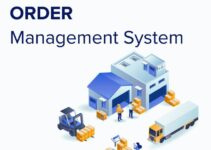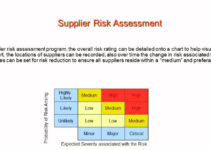The supply chain plays a key role in the growth and development of production and manufacturing companies. It is a network of stakeholders and companies that play their role in the lifecycle of the product. Production and manufacturing are part of the SC network and processes. Today, we’ll discuss production in supply chain management; its definition, and the elements and steps involved in the production and manufacturing stage.
What is Production in Supply Chain Management?
Production in supply chain management is a key phase in the SCM process and it focuses on converting raw material into finished goods. The production and manufacturing stage comprises different activities and processes and they contribute significantly to the efficiency and effectiveness of the processes.
Elements of Production in SCM – Stages
Some of the main elements and stages of production in supply chain management are as follows;
Planning and Scheduling
Production planning comprises finding the optimum level of resources, schedule, and production quantity that the company needs to satisfy the demands of customers. It consists of studying capacity limitation, inventory level, and sales forecast to set up a production plan.
On the other hand, scheduling comprises developing a sequence of production activities, allocating resources, and a timeline for the smooth flow of operations. Efficient and effective scheduling and production planning would help you to decrease lead time, amplify overall production efficiency, and optimum utilization of resources.
Sourcing
Sourcing helps you to find high-quality material from various suppliers and vendors at the most suitable price relevant to your budget. The process of sourcing doesn’t just end after procuring the material and supplies; rather it focuses on developing long-term relationships with customers. However, it comprises purchase planning and order management throughout the process of procurement.
Material Management
Managing materials and supplies plays a key role in the growth and success of the overall production and manufacturing process. It consists of various activities and processes like the following;
- Controlling inventory
- Procurement
- Managing raw supplies, material
- Ensuring timely availability of resources
- Demand forecasting of material requirements
- Efficient inventory level
- JIT (just-in-time) production strategy
- Developing relationships with suppliers
Effective material management helps you to streamline manufacturing processes, avoid stockouts and overstocking, and decrease inventory carrying costs.
Quality Management
Quality management helps you to make sure that the finished goods would satisfy the needs of wishes of customers and follow the industry standards and requirements. It consists of launching the quality control measures and protocols throughout the manufacturing process like the following;
- Analyzing raw material
- Quality control checks in-process
- Testing of finished goods
Implementing the quality management strategies helps you to comply with following standards and protocols;
- Quality standards
- Launching process improvement
- Implementing root cause analysis to point out defects
- Evaluating and improving product quality continuously
Optimization of Production Processes
Optimization of production processes is critical to amplify the efficiency and productivity of the processes. It comprises analyzing the current and existing processes, launching improvement steps, and recognizing issues and problems. However, continuous process optimization allows you to decrease costs, amplify the utilization of resources, and streamline various operations.
TPM (total productive maintenance), Six Sigma, and Lean Manufacturing are some of the main strategies that would help you to decrease production downtime, improve output, and decrease wastage of resources.
Technology & Equipment
The latest technology and modern equipment are highly significant for the efficient running of production and manufacturing processes. Companies invest a significant amount of resources in digital technology, automation systems, and advanced machinery to improve product quality, production, and manufacturing speed, and streamline various operations.
However, implementing the latest technology like data collection of data analytics would help you to improve decision-making and analyzing performance. When you launch a preventive maintenance strategy, then it helps you to decrease production disruptions and improve the performance of equipment.
Training & Employee Management
Effective training management contributes significantly to the smooth flow of production and manufacturing processes and operations. In order to improve the knowledge, skill, and expertise of employees, businesses and companies should take the following steps;
- Offering training and development programs
- Recruiting skilled professionals
- Planning workforce properly
- Continuous improvement strategies
- Quality control measures
- Safety protocols
- Training on equipment operations
When employees engage in cross-functional roles, it improves morale, productivity, and a positive workplace environment with performance incentives and coordination.
Environmental Sustainability
Implementing an environmentally sustainable strategy has become highly significant in the production and manufacturing processes. The focus of businesses and companies is on launching sustainable practices, low energy consumption, and low waste. It means that companies should take the following steps;
- Complying with environmental regulations
- Recycling programs
- Optimized packaging
- Eco-friendly material and supplies
Conclusion: Production in Supply Chain Management
After an in-depth study of production in supply chain management; we have realized that manufacturing and production is the significant stage in SC processes. If you are learning about production in SCM, then you should keep in mind the abovementioned elements and components.
Ahsan is an accomplished researcher and has a deep insight in worldly life affairs. He goes Live 3 days a week on various social media platforms. Other than research writing, he’s a very interesting person.


